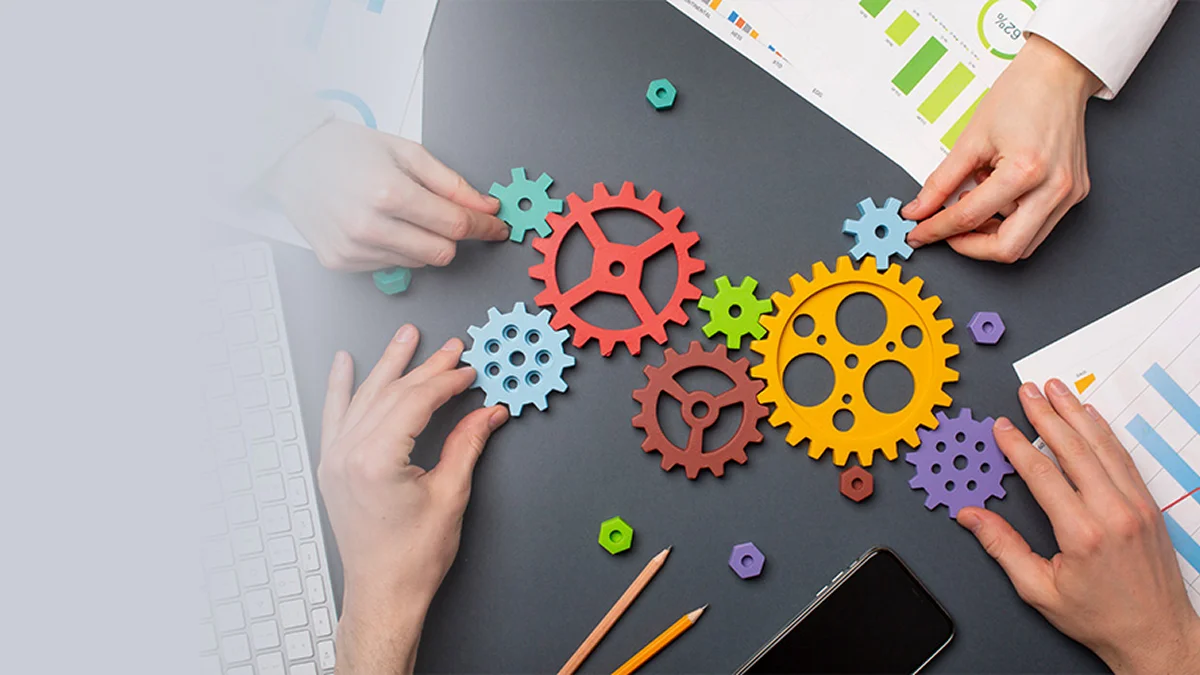A business cycle, also known as a trade cycle or economic cycle, is a fluctuation of the overall economic activity of a nation throughout various phases. It represents a cyclical pattern of growth and decline in overall economic activity, as indicated by variations in its gross domestic product (GDP). Phases of a business cycle are like different chapters in a story, each with its own unique characteristics and effects on people's lives.
Let's delve deeper into the concept of the phases of a business cycle, factors that influence the business cycle and much more. Read on!

6 Phases of Business Cycle
Here are 6 phases of a business cycle:
1. Expansion
In a business cycle, the first stage is expansion, during which we can experience a boom in the economy. Basically, all the positive indicators, such as a rise in employment, profits, demand/supply, wages and output, increase during an economic expansion. This phase continues as long as all economic conditions are favourable.
2. Peak
In the peak phase, the economy reaches its peak or saturation point. It is mainly because, in the expansion phase, the demand for goods increases and so do their prices. Therefore, consumers typically adjust their spending habits during this period. At the peak, economic indicators do not grow further which marks a reversal point in the entire business cycle.
3. Recession/Contraction
The peak stage is followed by the recession or contraction stage. During this time, demand for goods and services takes a downturn and starts to decline consistently. It becomes difficult for most manufacturers to recognise a decrease in market demand, leading to an oversupply in the market. As a result, prices of goods and services decrease. This downward trend affects various economic indicators like income, wages, output, etc., causing them to decrease.
4. Depression
This recession phase continues to decline and takes a severe state known as depression. In this particular phase, stock prices take a sharp downturn, and many companies are left with no other option than shutting down, which ultimately results in an increase in the rate of unemployment in the country.
5. Trough
The depression stage is followed by the trough stage, the lowest phase in an entire business cycle. During the trough, all economic indicators continue to decline and reach a negative saturation point.
6. Recovery
The trough stage is followed by the recovery stage, in this particular phase, one can notice an economic turnaround. The economic indicators, such as demand for goods and services, again start rising along with a rise in prices.
During this phase, the economy continues to grow until it reaches a steady position, thus completing one business cycle in its entirety.
Also Read - When is the Right Time to Take a Business Loan?
What Factors Influence the Business Cycle?
Here are several factors which can influence the business cycle:
1. Supply and Demand
One of the major factors that influence the business cycle is the demand for goods and services along with its supply. Mainly, it refers to the quantity or capacity of goods and services businesses possess to offer to their customers. When the demand for a product or service is more than its supply, the price of the same increases and vice versa.
2. Availability of Capital
The availability of capital means how much money a business or person has to spend or invest. A company with excess funds can purchase more assets, inventory, etc., and enhance its business. Also, with a massive surplus, a company can be more flexible and expand its business by setting up new facilities, hiring more employees and following other business expansion strategies.
3. Consumer Confidence
Consumer confidence is about how confident people feel about buying things. Individuals usually spend more money when they feel sure about their future money and are happy with how much they earn. This increase in confidence can make the economy grow.
Also Read - What are the Different Types of Business Models in India?
To Conclude
Understanding each of the phases of a business cycle helps to get clarity on how economies go through periods of growth and decline. Just like seasons change, economies also go through ups and downs.
Having clarity on each of these phases can help individuals, businesses, and governments make better decisions to manage resources. Moreover, it enables one to plan for the future and overcome obstacles during economic downturns, ultimately contributing to the stability and resilience of the economy.
Frequently Asked Questions
1. How is the business cycle measured?
The expansion and recession phases of a business cycle can be measured in terms of growth in real Gross Domestic Product (GDP). It takes into account several financial data such as employment, production, income and retail sales.
2. How is the business cycle monitored?
Business cycles can be monitored by using monetary and fiscal policies, which help to determine the interest rates and taxes. The main goal of these policies set by-laws is to help the economy grow and prevent inflation.
3. How long does each business cycle last?
The duration of business cycles changes based on how the economy is performing. Typically, expansions last about five years, and contractions last around 11 months. On average, a full cycle lasts for 5 to 6 years.
4. What was the longest economic expansion?
According to the National Bureau of Economic Research, the longest economic expansion in the US lasted for around 120 months which started in March 1991 and reached its peak in March 2001.
We take utmost care to provide information based on internal data and reliable sources. However, this article and associated web pages provide generic information for reference purposes only. Readers must make an informed decision by reviewing the products offered and the terms and conditions. Loan disbursal is at the sole discretion of Poonawalla Fincorp.
*Terms and Conditions apply